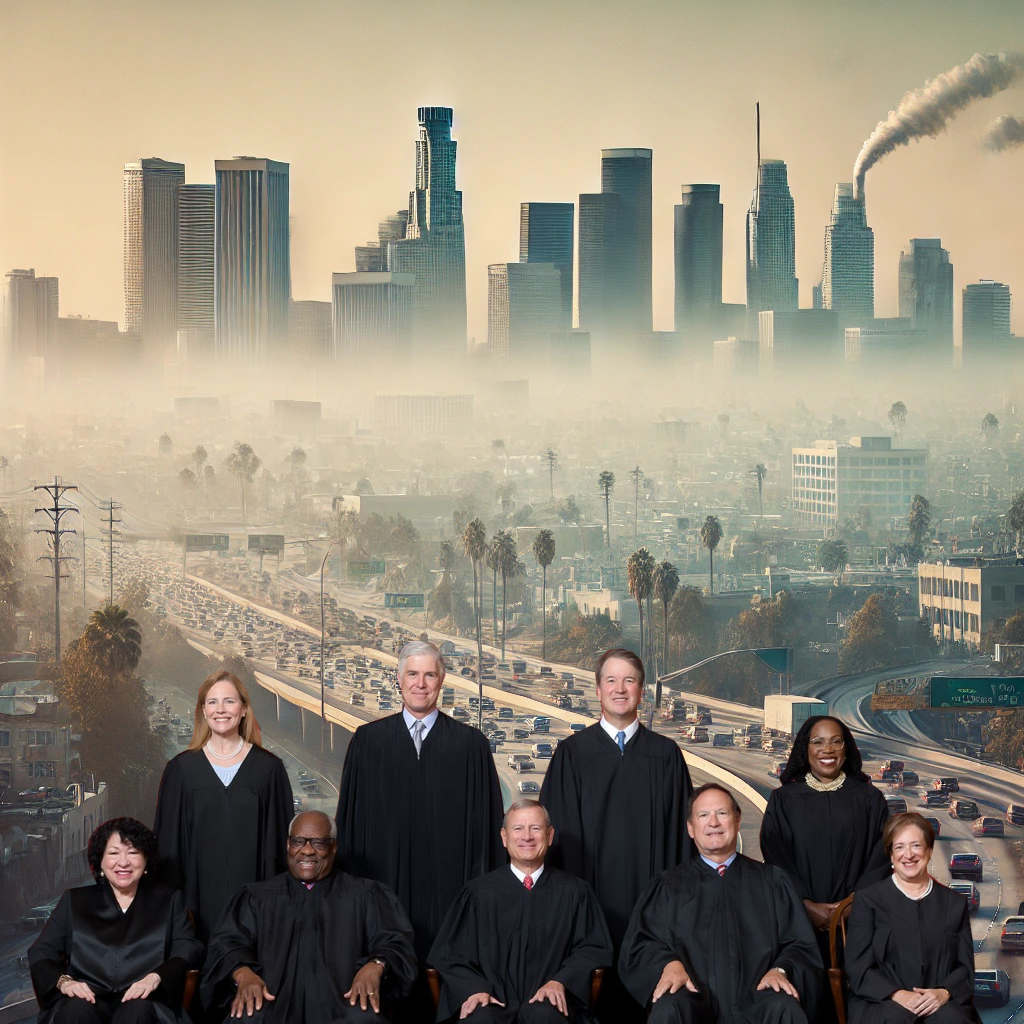Climate denial, much like the tobacco industry’s denial of the harmful effects of smoking, relies on substantial funding from vested interests to propagate skepticism about climate science. Just as critical thinkers would readily recognize the tobacco industry’s financial influence behind smoking denial; they should similarly discern that the vast funding from fossil fuel companies and affiliated organizations underpins climate denial efforts. It’s noteworthy that no reputable university in the world teaches that anthropogenic warming is not occurring, further highlighting the overwhelming scientific consensus on the reality of climate change and the human role in exacerbating it. The studies underpinning this article are linked to in the last slide.
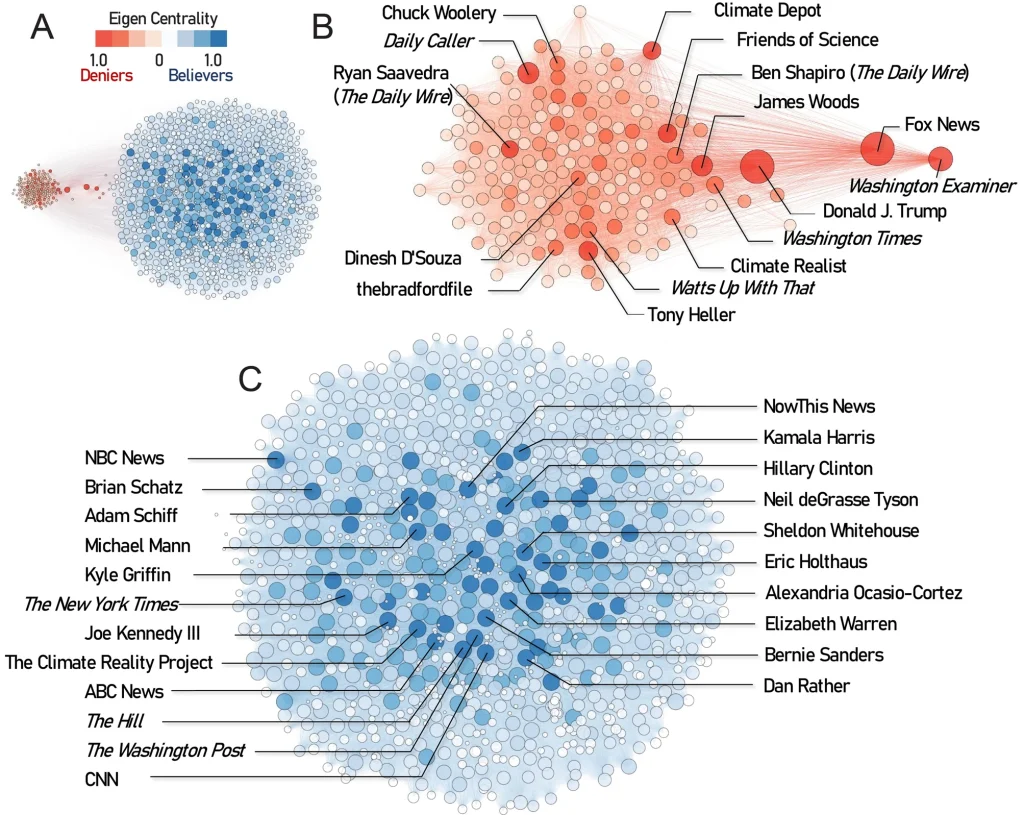
Climate change is a multifaceted issue, encompassing politics, culture, and science, with advocates on both sides of the spectrum. One faction promotes the unrestrained use of fossil fuels, while the opposing side stresses the imperative of implementing carbon emission limits to confront climate change head-on.
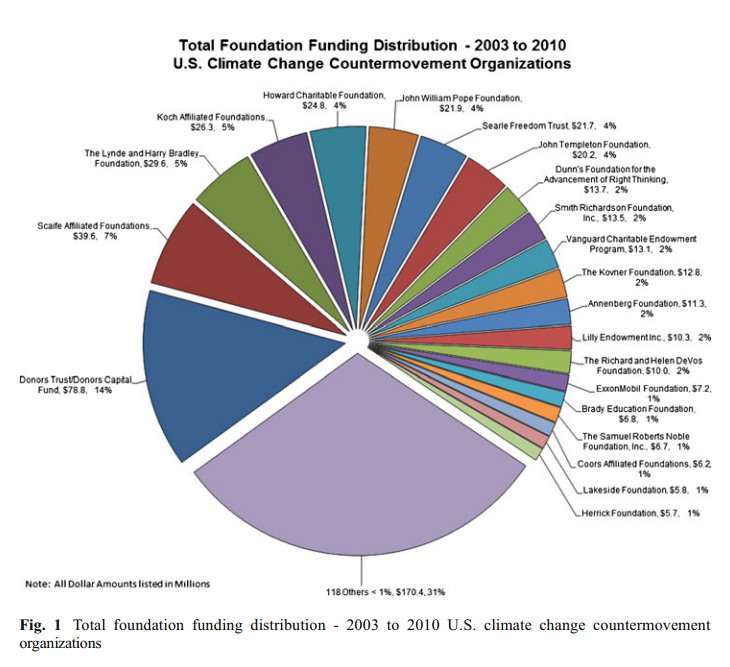
Embedded within the discourse is the “Climate Change Counter Movement,” a coalition aimed at challenging the prevailing scientific consensus on climate change by casting doubt on the evidence supporting the necessity of carbon emission restrictions. This movement comprises an array of organizations, including conservative think tanks, advocacy groups, trade associations, and foundations, all with connections to sympathetic media outlets and politicians.

The impact of conservative foundations in shaping the Climate Change Counter Movement cannot be underestimated. Despite attempts to obscure funding sources, it’s evident that major conservative foundations have wielded significant influence in supporting these endeavors. Notably, from 2003 to 2007, the Koch and ExxonMobil Foundations were prominent contributors to organizations aligned with the Climate Change Counter Movement, though their publicly traceable contributions have waned since 2008, with funding now flowing through less transparent channels. Operating behind the scenes this well-funded network is dedicated to discrediting climate change. This network, comprising think tanks, advocacy groups, and trade associations, collectively receives nearly a billion dollars annually to obstruct climate action and shape public opinion.
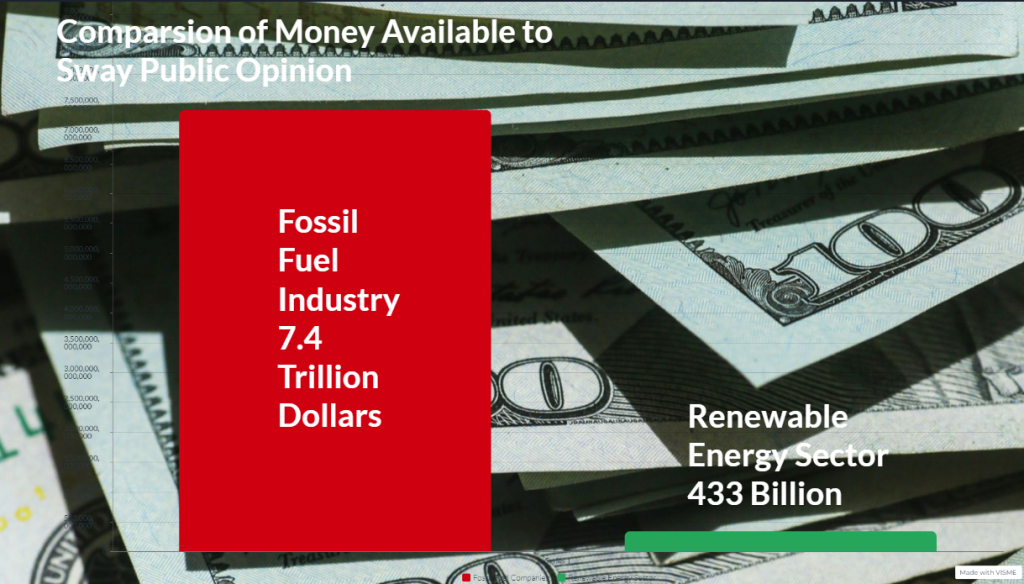
Fossil fuel companies hold substantial financial sway, boasting a combined market capitalization exceeding $7.404 trillion. Leading this cohort are behemoths like Saudi Aramco, valued at $1.939 trillion, closely followed by Exxon Mobil ($457.50 billion) and Chevron ($294.19 billion). In stark contrast, renewable energy companies face an uphill battle, with a combined market capitalization of approximately $433.54 billion, led by NextEra Energy with a market cap of $135.57 billion.

The roots of climate denial are intertwined with both conservative foundations and corporate funding. Formerly backers of broader conservative causes, conservative foundations now funnel significant funds into climate denial efforts. Additionally, corporate sources contributed over $900 million annually to organizations disseminating climate misinformation from 2003 to 2010.
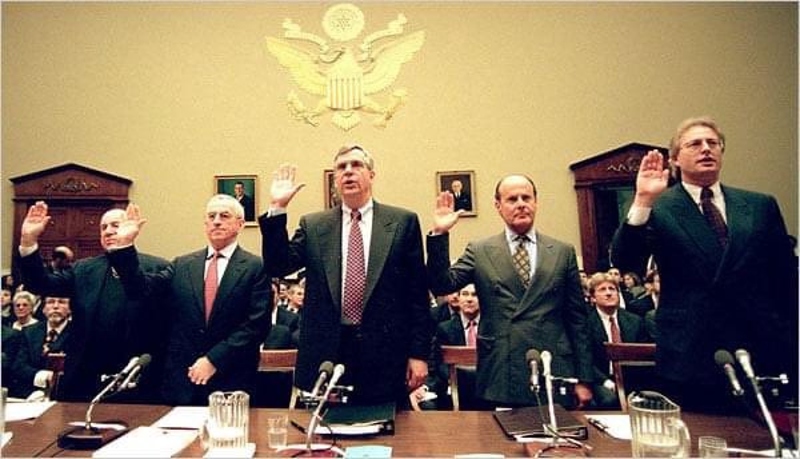
Interestingly, there are striking parallels between the actions of big tobacco and the groups involved in climate denial. Just as tobacco companies once funded research to cast doubt on the harmful effects of smoking, these organizations have financed campaigns to sow skepticism about climate science. Both industries have employed similar tactics, including funding biased studies, casting doubt on established scientific consensus, and influencing public opinion through strategic messaging and lobbying efforts.
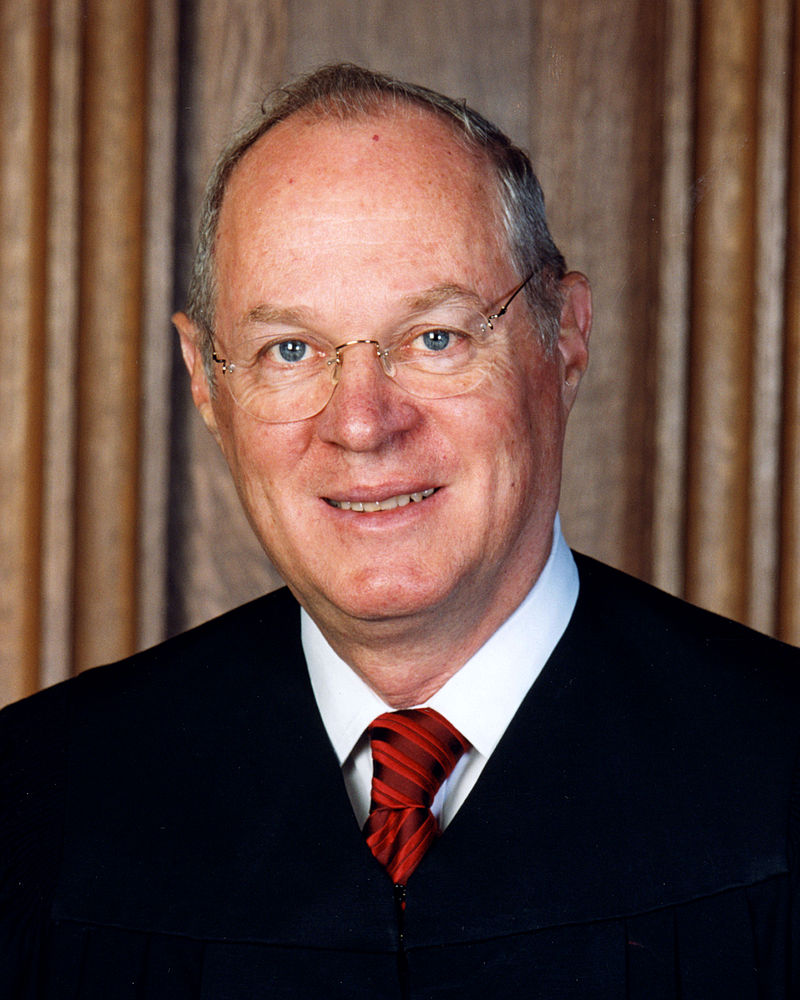
The landmark Supreme Court decision in Citizens United v. FEC (2010) fundamentally altered campaign finance laws, enabling corporations to inject unlimited funds into political activities, including climate denial campaigns. This decision facilitated the influx of undisclosed “dark money,” complicating efforts to trace the true origins of funding behind climate denial initiatives post 2010.
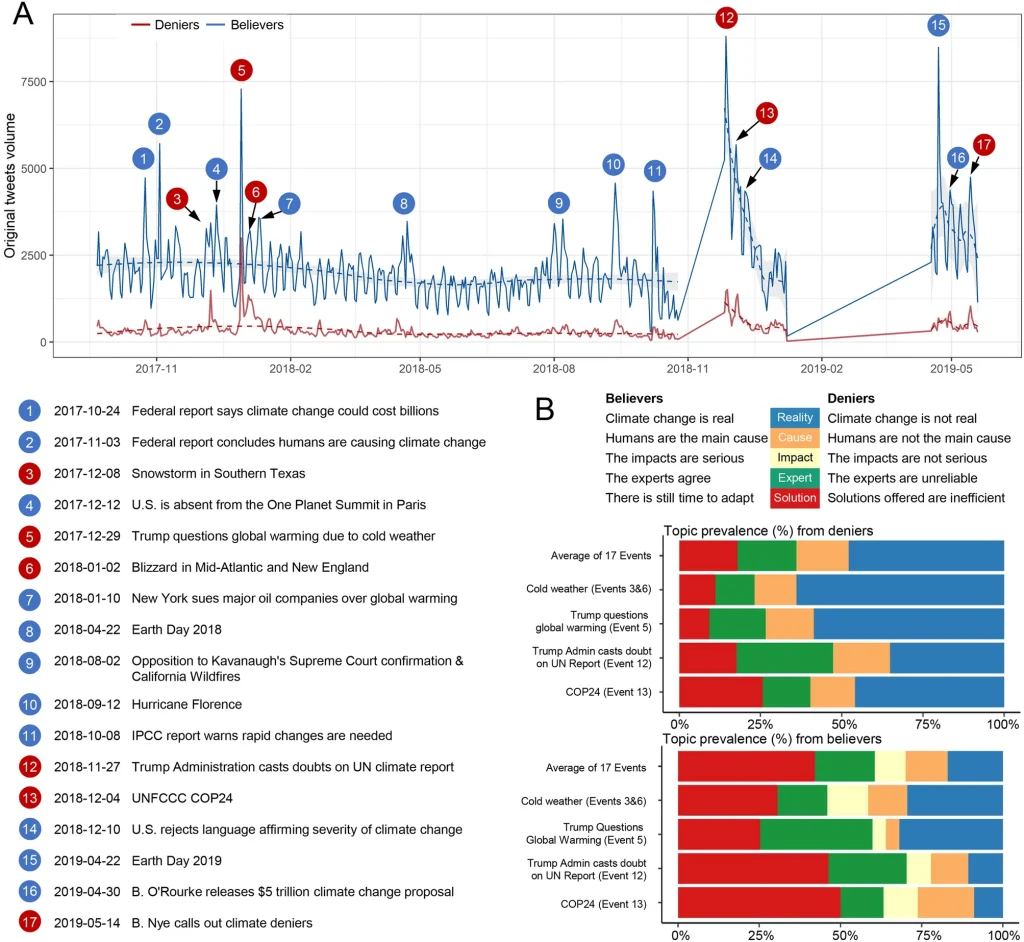
Grasping the financial dynamics underpinning climate denial is paramount for effectively addressing the issue. By exposing the funders and their motivations, we can better combat misinformation and strive towards substantive climate action. Prioritizing scientific evidence and collective endeavor is essential to mitigating the repercussions of climate change and preserving our planet for future generations.

Study 3: The social anatomy of climate change denial in the United States




